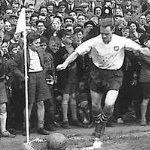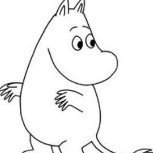Leaderboard
Popular Content
Showing content with the highest reputation on 16/08/21 in all areas
-
Cups are a bonus would swap both every year for the league till the end of time. The press would have you believe otherwise but that's the only stick they have. The league is the only real pressing concern. Europe is next then the cups are a bonus.3 points
-
OBITUARY Gerd Müller obituary Deadly centre forward for West Germany who proved to be England’s nemesis during the 1970 World Cup quarter final in Mexico Monday August 16 2021, 12.01am, The Times Gerd Müller scores the winner against England in the 1970 World Cup DPA/PA However many times the game is replayed on television the score remains the same. Gerd Müller still volleys in the winning goal to send England crashing out of the Mexico World Cup in 1970. England were 2-0 ahead and cruising to victory in the quarter final before two late West German goals sent the game into extra time. As England tired in the heat, Jürgen Grabowski beat Terry Cooper and sent in a deep cross. The ball was headed back across the goal and Müller pounced, contorting his body into a horizontal position to volley the ball past the England goalkeeper Peter Bonetti and into the roof of the net from close range. “We played at midday. It was 110 degrees and England thought they had already won it,” Müller recalled. “They took off Bobby Charlton. They wanted to save him for the next game. What a present! So Franz Beckenbauer moved into midfield. Big mistake by England.” The moment that broke English hearts exemplified the diminutive West German’s unerring instinct for a goal in a career during which he had some claim to being the greatest goalscorer in the game. The statistics certainly support the case of the man known as “Der Bomber”. He scored nearly 400 goals for Bayern Munich in 453 appearances. At international level his record was simply astonishing: 68 goals in 62 appearances for West Germany. There would be more heartbreak for England. In 1972 Müller’s last-minute goal at Wembley in a European Championship quarter final sealed an emphatic 3-1 win: Germany’s first on English soil and still regarded as one of the nation’s greatest footballing achievements. Müller was only 5ft 8in tall, but his muscular legs gave him explosive speed over short distances and a surprising spring, enabling him to outjump taller defenders. With his squat physique and low centre of gravity, he could twist and turn sharply in tight spaces in the opposition penalty area. His most important goal — the winner in the 1974 World Cup final on home soil against the Netherlands — was classic Müller, in one movement controlling a pass that was behind him and swivelling his body to somehow get in a right-foot shot with minimal backlift. Müller later claimed that West Germany had won the 1974 World Cup after he and his close friend and room-mate Beckenbauer had persuaded the manager, Helmut Schön, to change the team, which had made a poor start to the tournament. Müller described his understanding on the pitch with Beckenbauer as telepathic. “He would stroll through the midfield looking for me, brushing the ball with the sole of his boot until he was ready to curl a long, low pass to exactly where I wanted it.” Unlike his great friend, Müller was criticised for drifting out of games and contributing little to team play. As the original “fox in the box”, however, he was there when it mattered to score goals. “I seem to sense when a defender is going to relax or make a mistake,” he once said. “Something inside me says, ‘Gerd, go this way, Gerd go that way.’ I don't know what it is.” Gerhard Müller, the son of a lorry driver, was born in Nördlingen, northern Bavaria, a few months after the end of the Second World War in 1945. Like so many young German boys of his generation his passion for football was triggered by West Germany’s sensational, and totally unexpected, victory over the mighty Hungarians in the 1954 World Cup final. The following year, as a ten-year old, he joined the youth team of the local amateur side, TSV Nördlingen. Initially he failed to impress the coaches there, one of whom advised him that he would never make a living out of football and told him to concentrate on his teenage job in a textile mill. Müller responded by scoring 48 goals in a season as an 18-year-old striker for Nördlingen. His feats persuaded Bayern Munich to take a chance and he signed with them in 1964. Initially the coach, Tschick Cajkovski, was not impressed, nicknaming Müller “the weightlifter” on account of his being overweight. Müller only made his debut on the insistence of the club president, but the goals soon flowed. In his first full season at Bayern he scored 35 times to help the club to win promotion to the first division of the newly established Bundesliga. He followed up the next season with another 15 goals in 33 matches. Fortunately for England it was October 1966 before he forced his way into the national side, three months after West Germany had narrowly lost the World Cup final to England at Wembley. He scored four times in a 6-0 drubbing of Albania in April 1967, but only became a regular in the national side in the 1969-70 season. Müller’s international opportunities were, at first, limited because the German captain, Uwe Seeler, whose style of play resembled Müller’s, held the central striker's role. Seeler’s eventual withdrawal to a midfield role to make way for Müller was to make the Germans a much more potent attacking threat at the Mexico World Cup in 1970. Müller scored ten times in six matches in the tournament. Apart from the goal that knocked out England, he scored another two in a dramatic losing encounter with Italy in the semi-final. The Germans were furious at what they saw as biased refereeing and dirty play by the Italians, prompting Müller to complain to his captain, Beckenbauer, at one point: “We are being cheated.” Müller’s contribution to national success over the next four years was just as impressive as his performance in 1970. After Germany’s elimination of England in the 1972 European Championships, they went on to beat the Soviet Union 3-0 in the final. Inevitably, of course, Müller scored twice. That team, with Müller as its cutting edge, is today regarded by most Germans as the best to have represented the country. In the 1974 World Cup, on home soil, Müller’s goalscoring achievements were less spectacular: four goals in all. Yet the fourth, and last, was the crucial one, securing victory against the apparently superior Dutch, who included the world’s best player at the time, Johan Cruyff. Hours after the game, Müller, still only 29, announced his impending retirement from international football. He carried on playing for Bayern Munich until 1978. In all for the German side he won three successive European Cups, four Bundesliga titles, four German Cups and one European Cup Winners’ Cup. He was seven times Bundesliga top scorer, twice won the “Golden Boot” for European top scorer in domestic football and in 1970 was voted European footballer of the year. Like many of his contemporaries Müller followed the lucrative trail to a footballing swansong in America. He played for the Fort Lauderdale Strikers in Florida for three seasons before finally retiring in 1982 and returning home. As several business ventures failed he slid into alcoholism. His marriage to Uschi broke up and he became estranged from his daughter, Nicole. Beckanbaeur and another former team-mate, Uli Hoeness, came to his rescue. He spent weeks in rehab in Austria, where his withdrawal symptoms from alcohol became so violent that at one point he was put into a straitjacket. Out of rehab, he was given a job as assistant trainer of Bayern Munich’s amateur team. The love and respect with which he was held there was obvious in 1995, at a 50th birthday party held by the club in his honour. Paying tribute, Beckenbauer said that without Müller Bayern would never have amounted to anything. Everyone in the room — players of the quality of Paul Breitner and Karl-Heinz Rummenigge — gave him a standing ovation. Müller was reconciled with his wife and daughter, who survive him. In 2015 he had Alzheimer’s disease diagnosed. Müller in 2010. In later years he recovered from alcoholism to become a coach at Bayern Munich DOMINIC BARNARDT/GETTY IMAGES Having been a man who always knew where the goal was, he wore thick spectacles in later years. Yet an air of Teutonic invincibility remained. He told Sue Mott in The Daily Telegraph in 1996: “The longest run I ever went without scoring a goal was three, maybe four matches. I do not remember a crisis of confidence. Ever.” Gerd Müller, footballer, was born on November 3, 1945. He died on August 15, 2021, aged 75 https://www.thetimes.co.uk/article/gerd-mueller-obituary-c6br2vggq3 points
-
It is a good idea in principle, no club should be paying more than it can afford and when they do it distorts the competition, but it can be easily abused. It was tried in rugby league and the big clubs were and are able to get round it. Wigan employed a player's wife as a secretary on exhorbitant wages for instance.2 points
-
Rangers should set out to win the domestic treble every season. Of course the league is always the top priority and doing well in Europe is more important than ever, due to the financial rewards but still...2 points
-
Barisic is not up to speed yet, after arriving late for pre-season because of the Euros. Barisic, on top form is still the best LB in the league, but until he gets up to speed, Bassey deserves his chance; he's started the season in fine form. If Bassey can improve his crossing he'll be some asset -- his crossing set up two against Dunfermline, didn't it?2 points
-
If Bassey can continue to deliver crosses as he did against the Pars, he offers much more than Barisic on his current (prolonged) form.2 points
-
There were a fair few hard tackles over the weekend that were allowed by the Referees, which was great to see. You can't beat a hard, well-timed, ball-winning tackle.2 points
-
2 points
-
2 points
-
Later Monday or on Tuesday I think as season ticket holders have until tomorrow to buy our seats...1 point
-
Eight results and two scores. No wonder Gribz, the feartie, doesn’t want to play. I’m willing to step back for the rest of the season so as not to discourage folk.1 point
-
Talking about the Sheep, after Brown and Lewis posturing at the Breidablik changing room in midweek, I reckon Broonaldinho will be sprinting for the coach, getting humped out of the League Cup by naughty Raith Rovers ...1 point
This leaderboard is set to London/GMT+01:00


.thumb.png.933227737d9b1db3d025cd3f6cbbf371.png)






